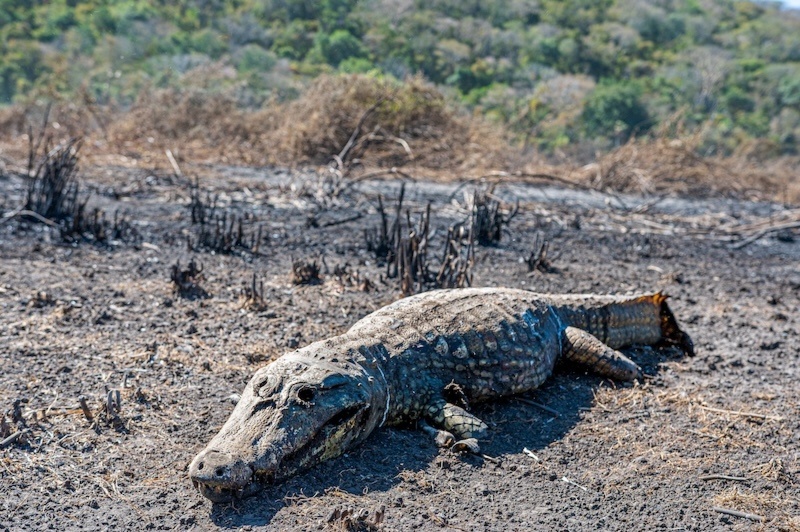A study has found that the devastating wildfires that tore through the world’s biggest tropical wetland, Brazil’s Pantanal, in June were made at least four times more likely and 40% more intense by human-caused climate disruption.
Charred corpses of monkeys, caimans and snakes are reported to have been left in the aftermath of the blaze, which burned 440,000 hectares (1.1m acres) and is thought to have killed millions of animals and countless more plants, insects and fungi.
The extent of the destruction exceeded the previous June record by more than 70%. This was driven by extreme fire weather that created a vast tinderbox. The month was the driest, hottest, and windiest June in the Brazilian Pantanal since observations began.
Such conditions are expected to occur once every 35 years at the current 1.2C level of global heating above pre-industrial levels, according to an international team of scientists at World Weather Attribution. If humans had not destabilised the climate by burning trees, gas, oil and coal, such extreme fire weather would have been far rarer, they said.
The once-unusual wind, heat and aridity made the fire weather conditions 40% more intense and four to five times more probable, revealed the analysis, which is based on observations of the weather as well as computer models.
Read also: Report: Biomass power station produced four times emissions of UK coal plant
The El Niño climate pattern, which faded before June, did not appear to have made a significant contribution.
These trends would grow worse in the future unless humanity stopped burning fossil fuels and forests, the scientists warned. And if global heating reached 2C, severe fire weather conditions would become about twice as likely and 17% more intense.
This is grim news for the human and non-human residents of this global centre of natural diversity. Located at the border with Bolivia and Paraguay, the Pantanal is home to many Indigenous groups and a huge range of unique species, and provides vital ecosystem services to the surrounding area, which is inhabited by tens of thousands of ranchers, farmers and fishers.
It is normally a vast carbon store, but like an increasing area of the Earth’s land, it is starting to create more emissions than in the past due to fires.
The origins of the fires are not always clear. Many start in and around areas that have been invaded or degraded by settlers. Others originate in accidents and from supposedly controlled burns that spread out of control.
Story was adapted from the Guardian.
